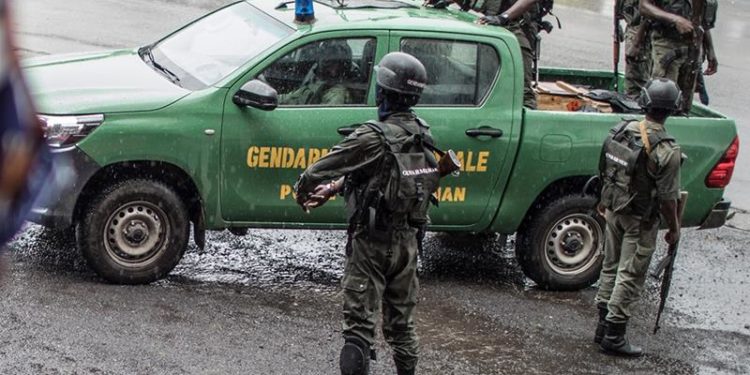Three soldiers have been charged with murder after a massacre earlier this year in western Cameroon where security forces are fighting Anglophone separatists.
“The three Cameroonian soldiers have been placed in provisional detention in Yaounde military prison,” army spokesman Colonel Cyrille Atonfack Guemo told AFP news agency, adding they had been charged with “murder”.
At least 23 civilians, including 15 children and two pregnant women, were killed on February 14 in the village of Ngarbuh, in what the United Nations, called “a shocking episode in the ongoing crisis that has afflicted the country’s Northwest and Southwest regions for the past three years”.
The military initially denied any role in the killings and said the deaths resulted from an “unfortunate accident” that happened when fuel containers exploded in the crossfire between separatists and troops.
As the international outcry amplified, President Paul Biya ordered an investigation.
The preliminary conclusions, published in mid-April, found three “uncontrolled” soldiers who disobeyed orders killed 10 children and three women with the help of local auxiliaries from the Fulani ethnic group.
The troops then “tried to hide the facts by setting fires” before submitting a bogus report, according to the probe.
“The killings were so outrageous, the abuses so blatant, and evidence so damming,” Ilaria Allegrozzi, senior Africa researcher at Human Rights Watch, said in a statement.
The Northwest and neighbouring Southwest region were once part of British colonies in West Africa. They joined French-speaking Cameroon after it gained independence from France in 1960.
Conflict between Cameroon’s army and English-speaking fighters seeking to form a breakaway state called Ambazonia began after the government cracked down violently in 2017 on peaceful protesters complaining of being marginalised by the French-speaking majority.
Rights groups have accused both sides of atrocities in the conflict, which has left more than 3,000 dead, closed schools and clinics, and forced 700,000 people to flee their homes.









